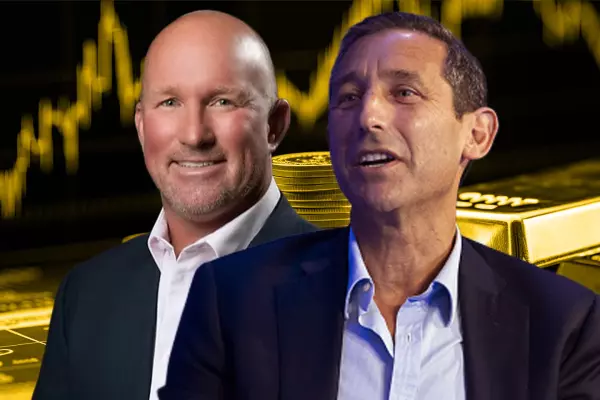BusinessDesk investments editor Frances Cook responds to emails from readers each week to answer questions about money. Below, you'll find her expert advice. Send your own questions to [email protected].
Hi Frances,
Just wondering where a good place to start/person to talk to is for the next stage of investments. Looking for advice on creating a bit of a plan moving forward to make sure we are using our money in the most efficient way. (I currently own a house, have two rentals, and have a bit in shares.)
I have kind of been winging it up until now.
Cheers,
D.
Hi D,
Sounds like you’ve been winging it pretty well!
But you’re right; once you’ve got a few assets built up, it can be good to check in with a financial adviser to ensure everything is set up right for you.
There are some things to check, some of them related to skills and qualifications, and some of them more about the "vibe". Both are equally important.
The skills
The first thing is to consider what you actually want advice on. In New Zealand, advisers can have specialties in three areas: mortgages, investments (including KiwiSaver) and insurance.
From your letter, it sounds like you’re after someone who specialises in investments, but with the rental properties, it could also end up straying into mortgage territory.
The good news?
Some advisers specialise in more than one area. If you run into issues in other areas (such as they think you need an accountant as well or some insurance help), they can usually recommend someone they work with to advise you as well.
So I would decide what your main priority is, then look for someone who has specialised in that area.
How to find them
You can narrow down some options by heading to financialadvice.nz. Only qualified professionals are allowed to be part of that site, and they have a neat search engine to let you look for professionals in your area, filtered by expertise.
If you have friends or family who’ve worked with an adviser, you could also ask for recommendations. Sometimes, this works really well because your friend has done the legwork of finding someone who’s good. Sometimes, it doesn’t because people can have different financial approaches. Worth a shot, though.
However you find them, just double-check that they’re registered on the Financial Services Providers Register.
Anyone providing one-on-one financial advice in New Zealand must be registered here, and if they’re not, I wouldn’t touch them with a barge pole. Your financial future is too important to be dealing with a cowboy.
The last safety check is to give them a quick Google search. It’s amazing what can be brought up this way, from news articles to odd posts.
Wheat from the chaff
From that process, I would have three top options. Then, I would contact them for the final in-person check.
Most financial advisers will give you the first meeting for free, and there’s a good reason. You want to check that they agree with their approach and that you’re a personality match as much as a financial match.
There’s more than one way to run your finances successfully. You can have different life priorities from someone else or different emotions that money stirs up for you, and these issues can mean you legitimately need a different approach.
There’s no one cookie-cutter approach, and that’s exactly why these professionals exist. They’re there because they understand the money world on a deeper level and should be able to tailor an approach to you.
So, this first meeting is where the "vibes" become important.
They should be asking about your goals, what’s important in your life, and anything that makes you financially nervous.
You should never feel talked down to at any point or that the adviser doesn’t like you asking questions. Those are red flags that would be deal-breakers for me.
A question I like to ask is: "How have you helped other people in a similar situation to me?"
Not only do you get an idea of their approach and experience in this area, but you also get a real-world example. Those are often easier to relate back to your own experience.
The money question
Another very important question is, "How are you paid?"
Some advisers work only on commission, getting a percentage or bonus from the companies they sign you up with.
Others ask for a flat fee upfront, paying for their time.
Others do a mix.
They are legally required to explain very clearly how they’re paid. They’re also not meant to allow any commissions to change what products or investments they would recommend to you.
Which is good, and I’m sure many good advisers work on commission.
However, my personal opinion is that it’s very hard for us humans not to be swayed, maybe even subconsciously, by something that can be to our benefit.
Personally, I’d rather pay a fee upfront for someone’s time than risk saving a little money at the beginning and ending up paying more over time because of commissions.
That’s me, though. You might feel differently.
One further note on this issue is that it’s standard for mortgage brokers to be paid commissions by banks, so it’s unlikely you’ll avoid it in that area.
Worried about the cost?
It’s also worth checking if you can get some help from an adviser, possibly from your workplace.
Many workplaces have employee wellbeing schemes or employee assistance programmes (EAP) that will pay for things like financial advisers or financial coaches.
This is for good reason – frankly, we tend to be more productive at work when we’re not stressed out about money!
So it’s worth checking in with your boss or HR if this is something they offer.
Send questions to [email protected] if you want to be featured in the column. Emails should be about 200 words, and we won't publish your name. Unfortunately, Frances is not able to respond to every email received, or offer individual financial advice.
Information in this column is general in nature, and should not be taken as individual financial advice. Frances Cook and BusinessDesk are not responsible for any loss a reader may suffer.














